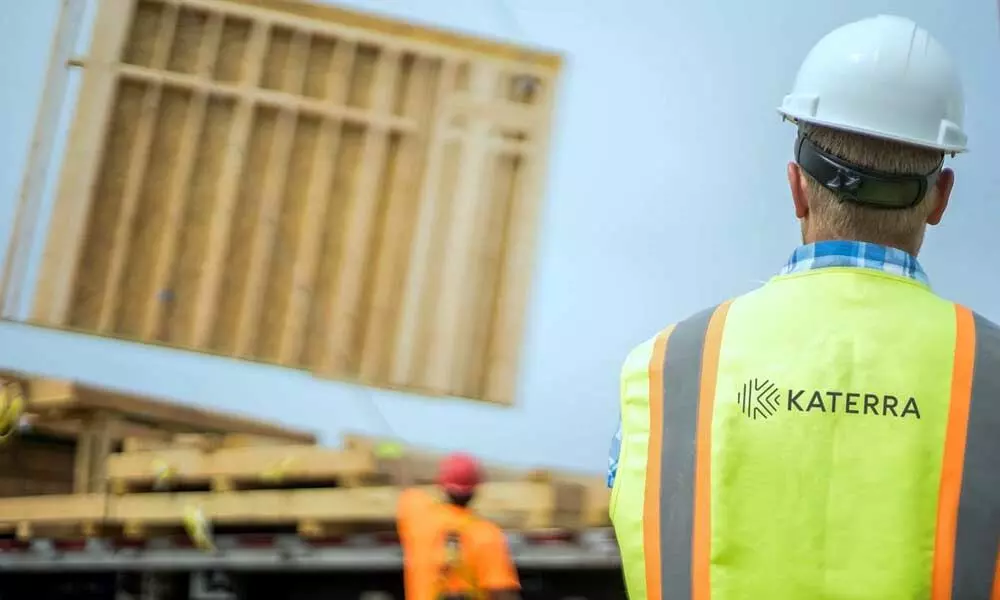How 2 reckless startups torched $4 bn of SoftBank investors' money?
Getting Greensill to finance construction startup Katerra may have seemed like a good idea. But the downfall of one sealed the demise of the other
image for illustrative purpose

To lose one multi-billion-dollar investment to bankruptcy may be regarded as misfortune for SoftBank, to lose two looks like carelessness or worse. It's a lesson in how a supposed strength of the $100 billion Vision Fund - getting its various startup investments to collaborate - can spark contagion when things don't go as planned
Three months after the collapse of Greensill Capital, a second SoftBank Group Corp Vision Fund unicorn, Katerra Inc, has filed for bankruptcy. Court filings show how the US construction startup became dependent on Greensill for financing and how the British finance firm's insolvency pushed Katerra over the edge too.
In total the implosion of this reckless pair has torched about $4 billion of SoftBank investors' money. There may be more fallout. Credit Suisse Group AG has cut ties with SoftBank and is considering suing the Japanese company to recoup $440 million in client funds that Greensill leant Katerra, according to the Financial Times.
To lose one multi-billion-dollar investment to bankruptcy may be regarded as misfortune for SoftBank, to lose two looks like carelessness or worse. It's a lesson in how a supposed strength of the $100 billion Vision Fund - getting its various startup investments to collaborate - can spark contagion when things don't go as planned.
The story of Katerra's rise and fall tracks a similar arc to WeWork, another SoftBank disruptor. Founded in 2015, Katerra set out to revolutionize a supposedly staid industry, commercial and residential construction, with repeatable building modules that could be assembled quickly on site. It expanded rapidly, including via acquisitions. It also consumed heaps of cash. Katerra regularly underbid on contracts and the subsequent delays and cost overruns contributed to about $2.8 billion in losses in the past three years, the court documents reveal. It's unclear why Greensill decided in December 2019 to lend to such a risky prospect, though it probably helped that both companies shared the same benefactor. Katerra temporarily avoided having to ask SoftBank for more money and it quickly ran up a $440 million tab at the London-based firm's expense. Greensill packaged those loans into securities and sold them to clients of Credit Suisse's supply chain finance funds.
Then the pandemic struck, interrupting construction and making Katerra's finances worse. Troubles of its own making hurt the company's ability to raise more money. Potential improper revenue recognition practices were identified at a renovations subsidiary, internal disciplinary action followed and Katerra informed the US Securities and Exchange Commission about the situation. No restatement of its financial results was required.
This would have been a good moment for Softbank to re-evaluate its commitment to Katerra. Instead it injected another $200 million toward the end of last year, allowing Katerra to avoid filing for bankruptcy and all but wiping out other shareholders in the process. The debt Katerra owed Greensill was written off and the Vision Fund "invested $440 million in the parent company of Greensill," the bankruptcy petition states. In hindsight, this was but a stay of execution.
When Greensill collapsed in March, Katerra was "bombarded with inquiries" about Katerra's own financial viability. One came from Credit Suisse, asking whether the $440 million in forgiven debt, "had any relationship with the receivables sold or owed to Greensill." I don't know how Katerra responded, but here's a guess: um, yes it did! Unfortunately for Credit Suisse clients the money never found its way to the Swiss firm.
Katerra customers got cold feet. Bonding companies that guarantee construction contracts started demanding "exorbitant" collateral and banks declined to offer further loans. In short, a death spiral ensued and two months later Softbank pulled the plug on Katerra too.
Doubtless Greensill felt comfortable lending to a company that boasted SoftBank as ultimate guarantor. Credit Suisse's involvement is harder to comprehend. As for SoftBank, its successful bets, such as South Korean e-commerce company Coupang Inc, have more than made up for duds such as Katerra and Greensill.
There are still lessons here for Masayoshi Son's giant technology firm. Not every disruptive new idea will be a commercial success, no matter how much money you throw at it. And when you become by far the largest shareholder in a startup, it will fall to you prop it up, so it's important to stress test the investment each step of the way.
Even now SoftBank is providing a $35 million loan to fund Katerra's operations through the Chapter 11 bankruptcy proceedings, bringing its total "investment" in Katerra to around $2.5 billion. When Greensill went under, SoftBank's financial engineering and the interconnections between Vision Fund companies no longer looked so clever. The demise of one unicorn sealed the death of another. (Bloomberg)

